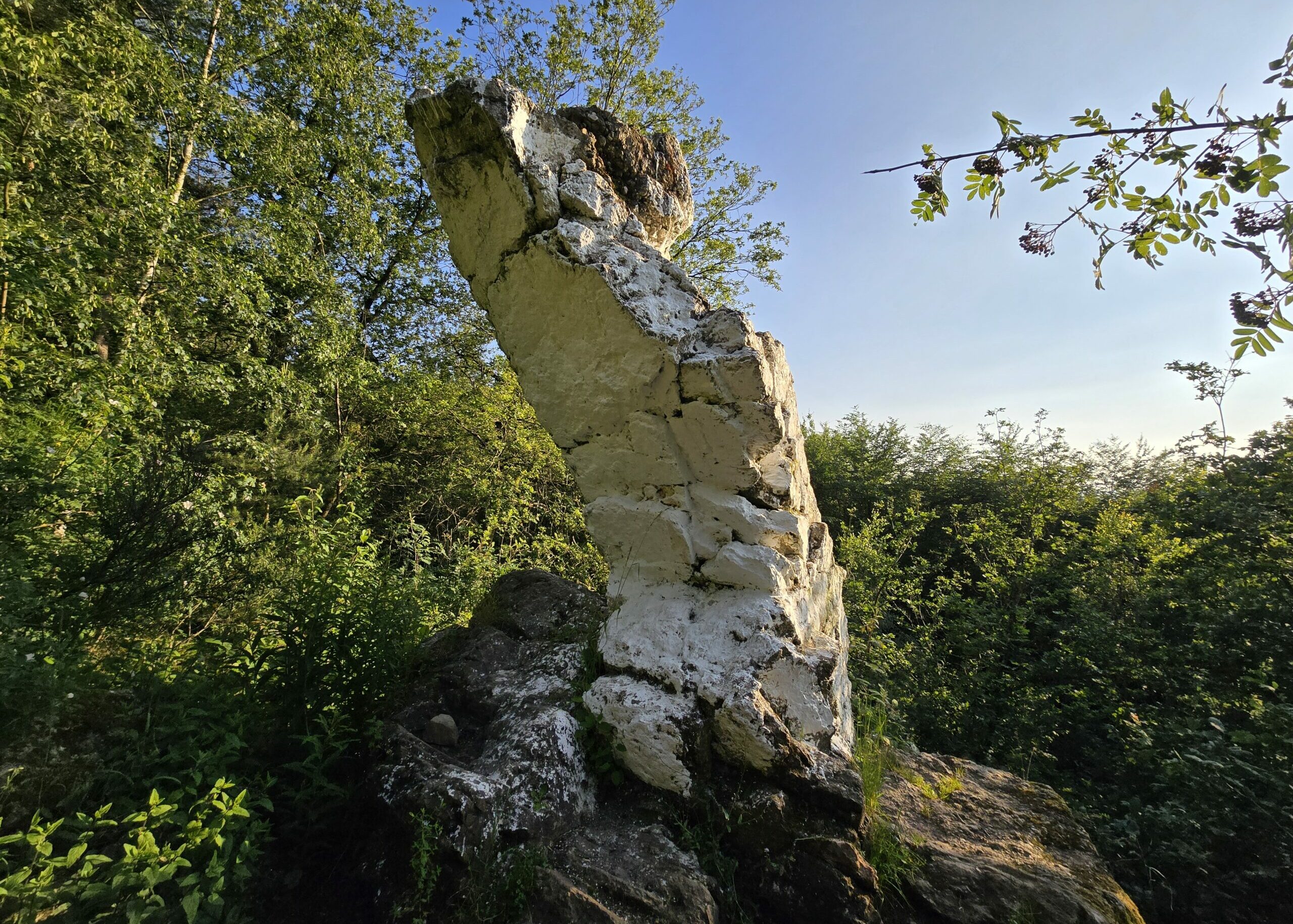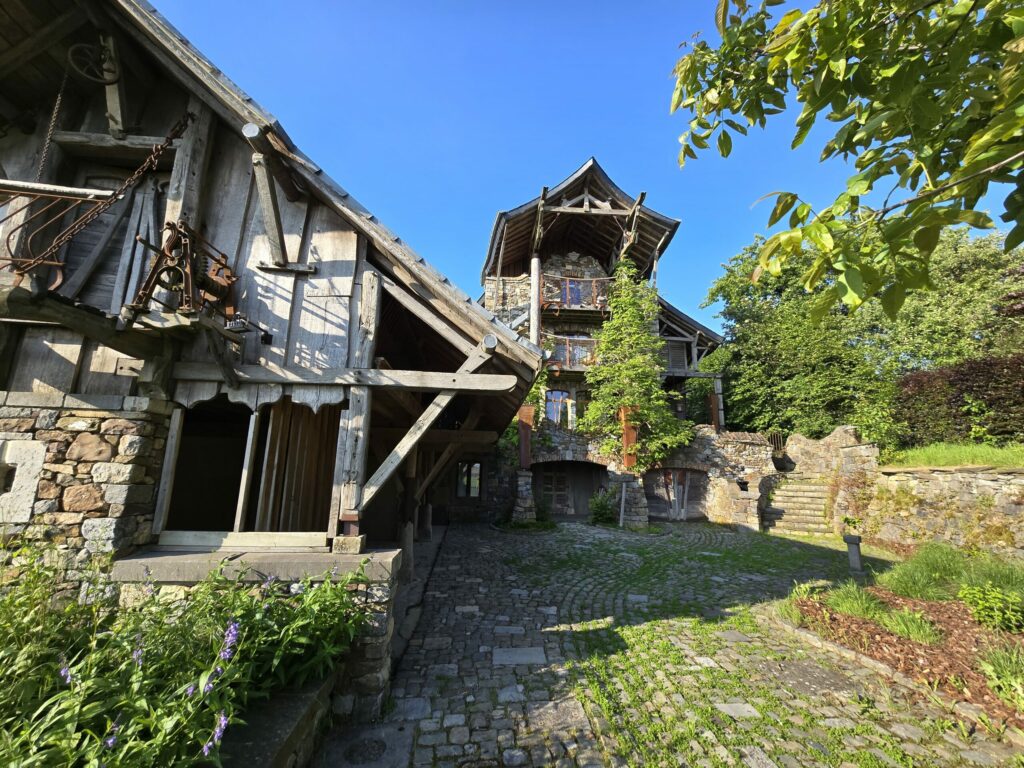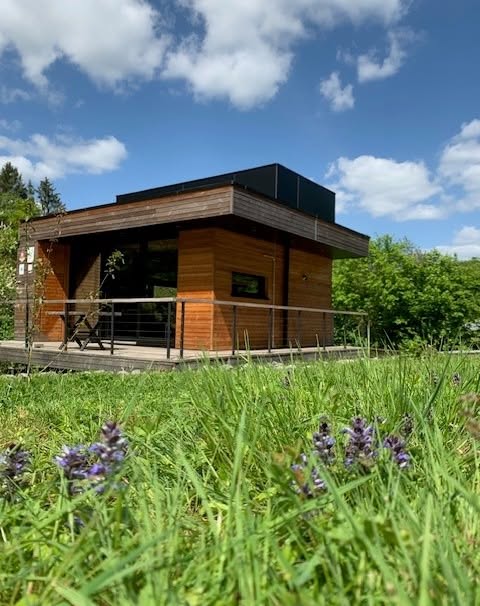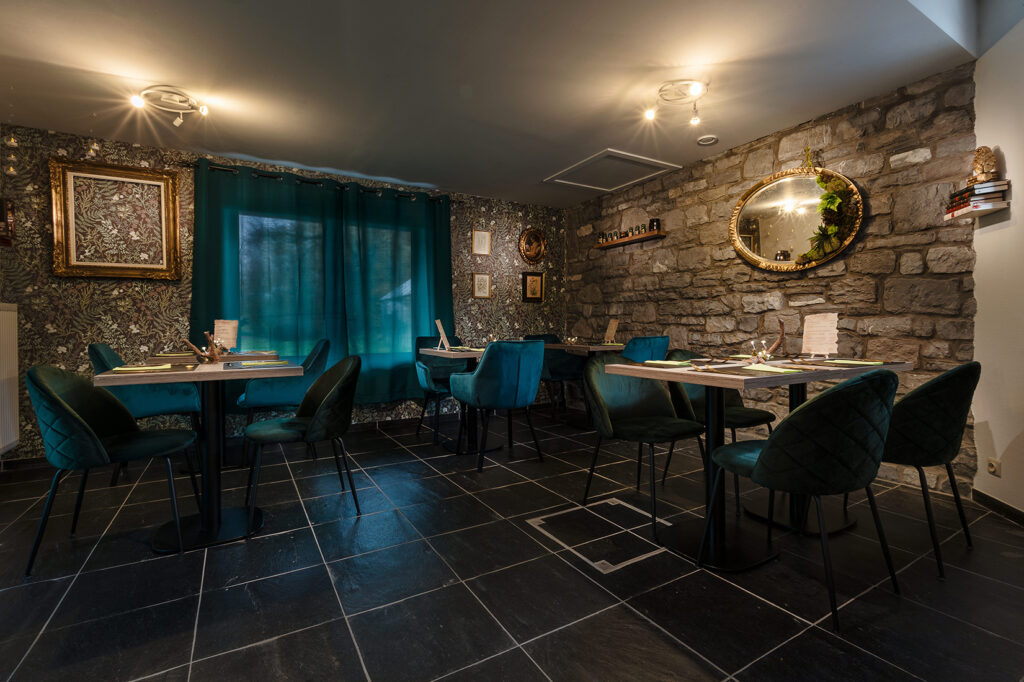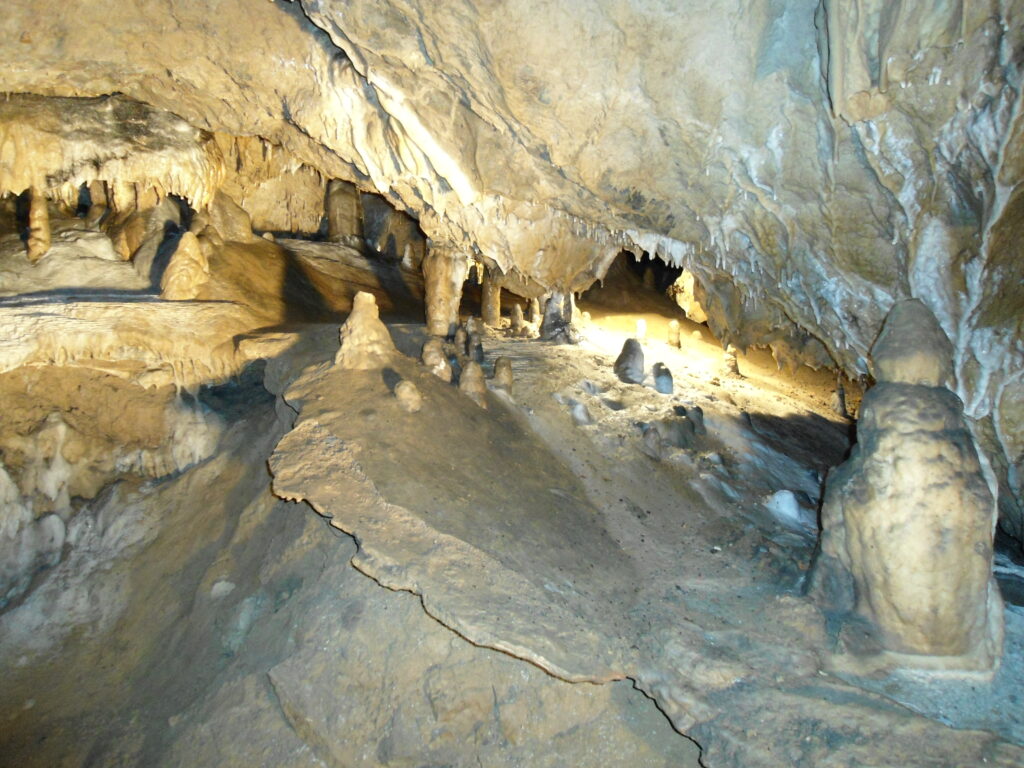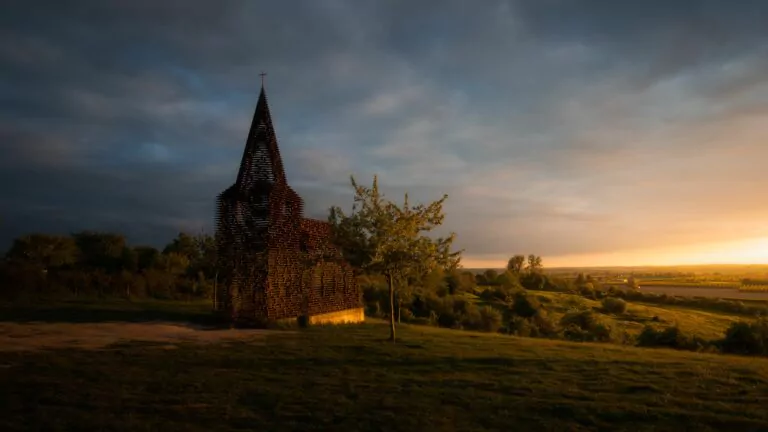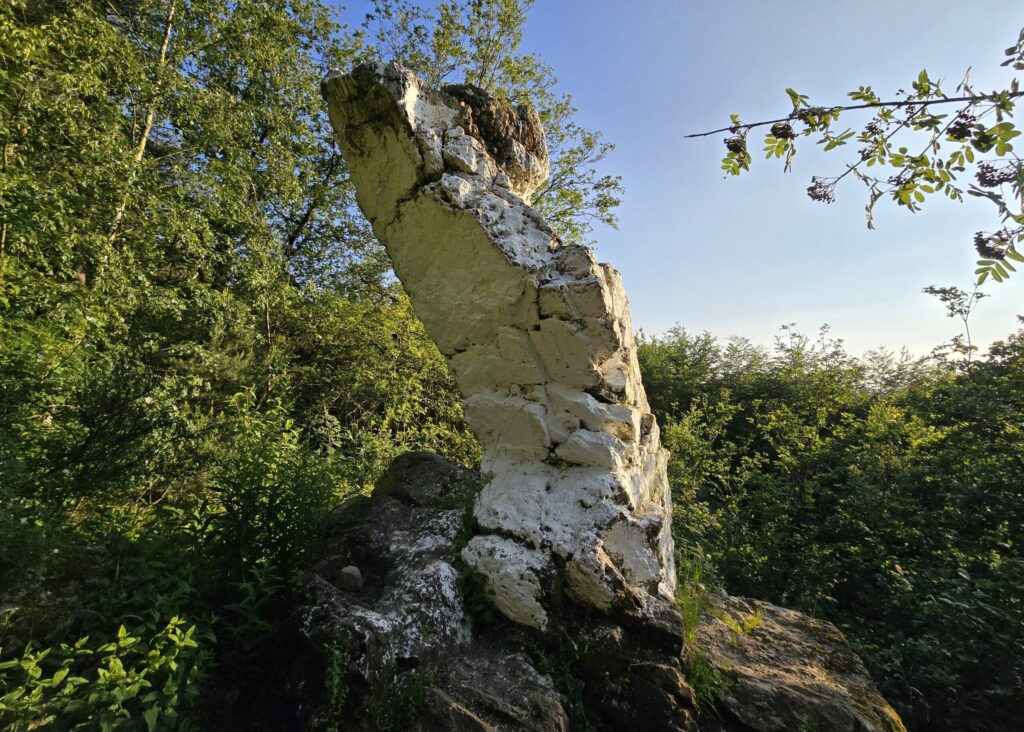
The Haina Stone, also known as the Ancestors’ Stone, is a rock located in Wéris. It is connected to the region’s megaliths, and its appearance fuels local legends.
Galerie photos
Location
The Haina Stone is situated on a wooded hill at an altitude of 360 m in Wéris, overlooking the first hills of the Ardennes. Hiking trail 57 leads to this stone through an environment of oaks, rowan trees, and heather.
From the Haina Stone, you can see several megaliths in the Wéris area, including the Wéris I dolmen, located 1,400 m to the west. At the equinox, the sun sets on the horizon beyond the dolmen when viewed from the stone. However, astronomical calculations have not confirmed whether the sun rises behind the Haina Stone and aligns with the three Oppagne menhirs at the summer solstice. It is therefore plausible that this stone was used as a marker for locating certain megalithic formations by Neolithic populations.
Description
Although often referred to as the “White Menhir,” the Haina Stone is not a menhir (a stone erected by humans) but a natural inclined puddingstone rock. The Wéris puddingstone is a conglomerate of pebbles bound together by a very hard fine sandstone.
Legends & Traditions
According to mythology, the devil uses a hole created by lifting the Haina Stone to access the center of the Earth (hell) and commit his misdeeds. He is said to rest on the Devil’s Bed, located 225 meters lower. Another legend tells of a priest who blasphemed against God during a storm and was turned into stone at this very spot.
Every year, at the autumn equinox, the inhabitants of Wéris whitewash the Haina Stone with lime to purify it and keep the devil away. This tradition is celebrated with festivities involving dancing, drinking, and food around the stone.
